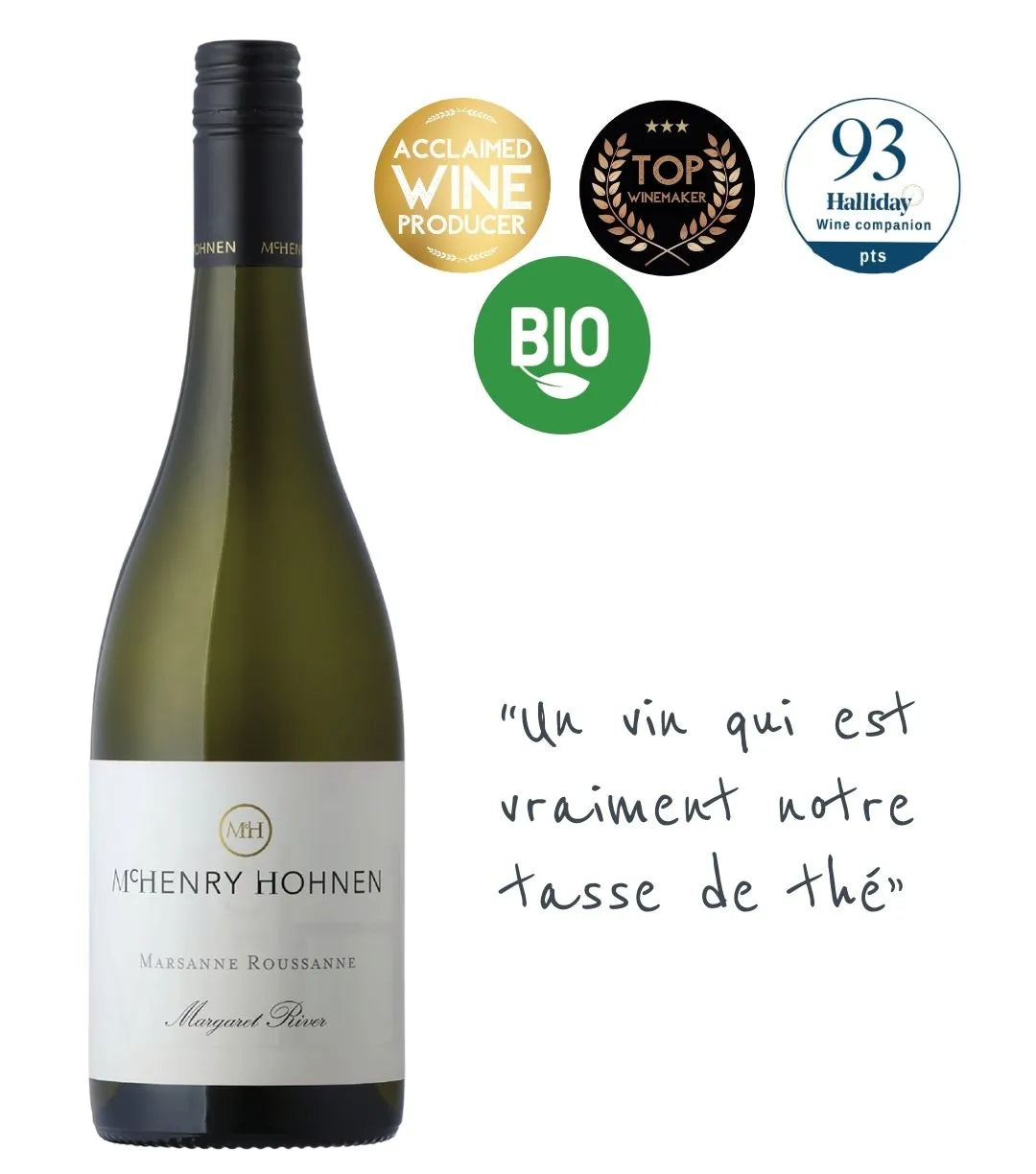
Marsanne Wine
Marsanne Wine
You probably know Viognier or Roussanne, but have you tasted the finesse of Marsanne? This emblematic white grape variety from the northern Rhône Valley offers wines of rare elegance, combining generous structure and subtle aromas. Between delicate floral notes, white-fleshed fruits, and a touch of fresh almond, Marsanne seduces with its complexity and exceptional aging potential. An essential discovery for lovers of great white wines!
Marsanne Wine
In the world of great white grape varieties, Marsanne occupies a place of choice, although often in the shadow of more publicized grapes. Originally from the Rhône Valley, this ancestral grape variety has crossed centuries to offer us wines of remarkable finesse and complexity. Its history, unique characteristics, and versatility make it a treasure of French wine heritage that deserves to be better known.
Origins of Marsanne: A Historical Grape Variety
Marsanne finds its roots in the northern Rhône Valley, more precisely in the eponymous village of Marsanne, located in the Drôme. Traces of its cultivation date back to the Middle Ages, where it was already appreciated for its regular productivity and the quality of its wines.
Long cultivated mainly in Hermitage and Saint-Joseph, where it contributes to the production of prestigious whites, Marsanne has gradually spread to other regions of France and even beyond borders. Today, although it remains deeply associated with its original terroir, it is also found in Savoie, Provence, and as far as Australia and California, where it seduces winemakers and consumers with its natural elegance.
A Subtle and Complex Aromatic Profile
Marsanne is distinguished by its balanced and refined personality:
On the nose: delicate aromas of white flowers (acacia, hawthorn), white-fleshed fruits (pear, peach), fresh almond, and sometimes honey
On the palate: a full and silky texture, with a generous structure balanced by chiseled freshness
Finish: long and often marked by delicately woody and spicy notes in the great cuvées
What makes Marsanne special is its fascinating evolution in bottle. Young wines, dominated by fruity and floral aromas, develop with time more complex notes of dried fruits, beeswax, and white truffle, while maintaining remarkable freshness.
Marsanne's Expression Terroirs
Although Marsanne has adapted to different regions, it is in specific terroirs that it expresses all its nobility:
Hermitage: On the left bank of the Rhône, the granitic soils and steep slopes give birth to Marsannes of exceptional depth and length, capable of aging for several decades.
Saint-Joseph: More accessible wines in their youth, combining freshness and elegance, while maintaining excellent aging potential.
Crozes-Hermitage: On more varied soils, Marsanne produces softer and fruitier wines, perfect for an introduction to this grape variety.
Australia (Victoria): Tahbilk's old Marsanne vines, some centuries old, produce wines of astonishing complexity, proving this grape variety's adaptability.
Marsanne Solo or Blended
Marsanne's versatility manifests in its different expressions:
As a single varietal: It then fully reveals its personality, with a full structure and subtle aromas.
With Roussanne: The classic northern Rhône blend, where Roussanne brings its aromatic intensity and liveliness to complement Marsanne's structure and roundness.
With other local varieties: In the southern Rhône or Languedoc, it can be blended with Grenache Blanc, Clairette, or Viognier for complex white wines.
How to Appreciate Marsanne?
To fully enjoy this exceptional grape variety:
Serving temperature: 10-12°C for young wines, 12-14°C for more evolved cuvées
Decanting: Beneficial for powerful young wines and old cuvées
Glassware: A fairly wide white wine glass to allow aromatic expression
Aging potential: 3-5 years for simple cuvées, 10-20 years or more for grand crus
Gastronomic Pairings: Elegant Versatility
Marsanne's full yet balanced structure makes it a choice gastronomic partner:
Noble fish: John Dory, turbot, lobster in creamy sauce
Poultry: Fattened hen with cream, capon with morels
Cheeses: Young Comté, Saint-Marcellin, aged goat cheeses
Exotic cuisine: Mild curry, coconut dishes
For old vintages, dare more audacious pairings like sweetbreads with truffles or pan-seared foie gras.
A Contemporary Rediscovery
After being somewhat eclipsed by more aromatic grape varieties like Viognier, Marsanne is experiencing a renewed interest today. Contemporary winemakers are rediscovering its unique qualities: its ability to express terroir, its exceptional aging potential, and its structure that allows for refined gastronomic pairings.
Whether you are a lover of great white wines for aging or simply curious to discover new taste horizons, Marsanne deserves a special place in your cellar. Elegant without being demonstrative, powerful without being heavy, it perfectly embodies the balance and finesse that make the greatness of French white wines.
Return to our list of grape varieties





